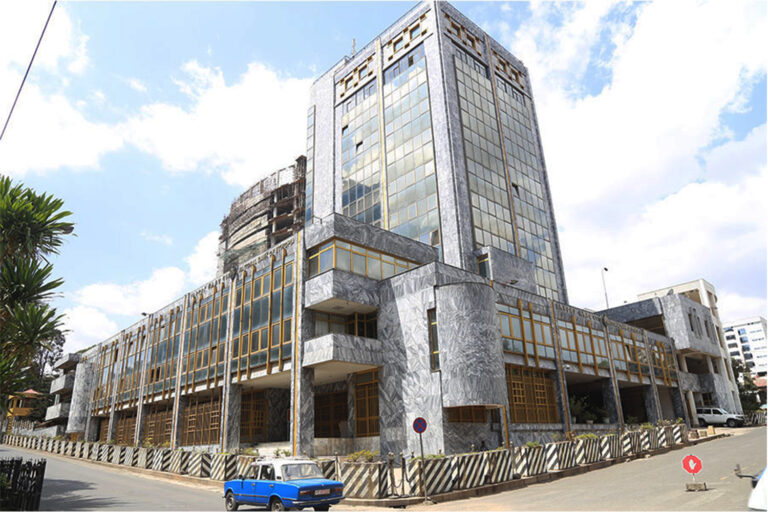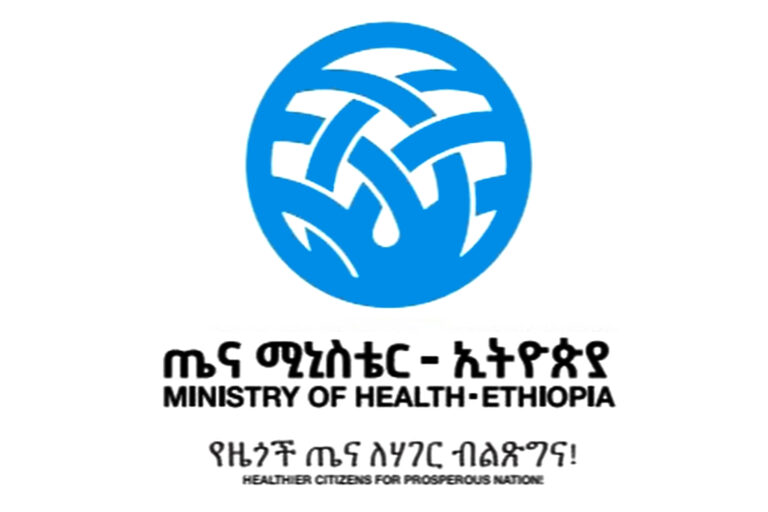The global pandemic COVID-19 is becoming another additional headache to the education system which was already crippled by violence in the past few months.
The Ministry of Education is contemplating to postpone the National University Entrance Exam of grade 12 which was scheduled to be conducted from June 1 up to June 3.
“The Ministry has formed a task force to oversee the situation and if things get worse there is a possibility that the date will be changed” said Haregua Mamo, communication director of the Ministry of Education.
However sources told Capital the printing of exam materials, which is done at Berhanena Selam Printing Enterprise is put on hold for the last two weeks.
On Monday, March 16, 2020 three days after the first case of corona virus was announced, the prime minister ordered to close schools across the country and for university students to remain where they are deterring mobility for two weeks for fear of the virus.
And on March 27, 2020 the government decides to extend the closure for two more weeks and students from higher educations to go back to their home.
The Ministry of Science and Higher Education that is responsible for Universities across the country announced that it is considering making instructional materials available online for students.
More than 20 million students over the country are obliged to stay at home as a result of the announcement.
Dechasa Gurme, Communication director of Ministry of Science and Higher Education said “if things get back to normal and if the government announces that students can go back to their schools in the coming one month, students may go to their university but if this cannot happen, students may be obliged to start their education in the coming year.”
In the past two to three years most higher education facilities were facing instabilities due to the political situation of the country.
A report by the ministry shows that in the past six months more than half of the 45 universities in two regions and Dire Dawa were knocked down by instability, and more than 35,000 students’ quit their classes because of the security issues.
Currently most of the higher education institutions are preparing to serve as a quarantine if things get worse in the country.
Different countries in the world are announcing that their schools will remain closed for the rest of the academic year due to the coronavirus pandemic.
Task force set up to decide the future of academic year
NBE to relax restrictive directives
During their virtual meeting bankers requests the National Bank of Ethiopia (NBE), to relax the loan rules to mitigate the economic effect that they face in relation with the outbreak of COVID-19.
The online event conducted with bankers to clarify the latest decision of the government about the pumping of 15 billion birr for private banks to manage their liquidity crisis, bankers and the central bank agreed on most of the discussion points, according to sources.
Sources said that since the government announced that it has released 15 billion from their NBE bills customers at banks are approaching to get their portion from the amount. Some of the customers have also claimed to NBE that they could not access finance from banks after the government pumped the stated amount.
One of the participants, who demanded anonymity, told Capital that the main objective of the meeting was to create clarity in the latest decision of the government.
Bankers argued that borrowers misunderstood the decision of the government that they said the main objective of the government to release the finance is to stabilize banks liquidity and to manage possible crisis because of the current situation depositors may took their savings and possible additional injections for highly affected industries due to the pandemic.
“For instance the horticulture sector might be highly affected in the current situation that shall need additional injection to keep it afloat,” one of the bank president explained.
However the reality is some clients are looking for debt cancelation and access unconditional additional loan provision, according to bankers. They criticized some of the borrowers that at the initial point the released amount is very small compared with the situation in the country.
According to sources at the meeting with the NBE governor, Yinager Desie, the idea was fully accepted by the central bank.
While the governor recommended banks to look their interest rate for loans that has its own role for inflation in the market. “You have to consider the burden imposed on the consumers,” he said, according to sources.
Sources said that banks raised the issue of relaxing its rules regarding loan reschedule. According to the sector expert, there are minimum compliance requirement that the central bank relax. “For instance some of the lenders might got a relief on their loans for a specific period. Due to that the government should consider the current challenge in the economy,” he said.
“They will look into it,” one of the bank president told Capital.
The meeting was conducted virtually on Thursday April 2, in the afternoon after the morning meeting was cancelled for technical reasons.
Internet subscribers rise sharply
New internet service customers at the state monopoly Ethio Telecom has tripled in the past couple of weeks because of price cut and the latest stay at home initiative for COVID-19.
About a month ago the service provider disclosed massive tariff slash for enterprises and private data users aiming to ensure access to the internet service.
According to the observation that Capital conducted in the past few weeks new internet subscribers and others that look more services are visiting the telecom shops.
Sales staff at the state monopoly stated that the number of subscribers increased sharply in the last couple of weeks. One of the telecom sales staff told Capital that the demand is not only for companies but for private users.
He said that in the past broadband technical survey, which is the evaluation of availability of quality and line at the location of demands, used to take a maximum of seven days but that jumped to two weeks now. “This is the effect that the service provider is taking huge demands at a time,” he said.
A company that is looking to get more data access told Capital that it has been told by the sales staff to wait for two weeks because of customers overcrowded.
One of the telecom sales staff told Capital that in the past couple of weeks the internet subscribers demand has almost tripled compared with the previous trend.
He suggested that the growing demand might be related with the price reduction by his enterprise. “May be the growing demand is also correlated with the global corona virus pandemic that forced significant number of resident in Addis Ababa to stay at home,” he said.
According to the sales staffs at both offices at the enterprise and individual customers divisions, the demand is for both ADSL/fixed broadband and mobile broadband internet services.
“I heard that at any given time at least 20 customers are lined up with a single sales representatives at the enterprise branch,” one of the sales staff said.
On the precaution of the outbreak of COVID 19 some private companies are engaged on buying mobile broadband (dongle 4G) services for their staff to continue their work from home. Recently the government applied the ‘work from home’ scheme for the majority portion of civil servants, while the private sector has not yet disclosed similar measures.
According to market observation, due to the growing demand apparatus shortage occurred, while Ethio Telecom is not selling the products.
On the broadband internet service tariff reduction, residential service users get up to a 69 percent discount while VPN service users will enjoy up to 72 percent discount. Moreover enterprises have got a 65 percent discount that has been applied as of last month.
Retired health professionals, medical students called to help the nation
Anticipating a surge in patients with COVID-19, the Ministry of Health (MoH) has called on retired medical staffs, in-training medical professionals, unemployed medical school graduates and other volunteers, to join the fight against the coronavirus pandemic.
According to the MoH, the health professionals, who respond to the national call, will be assigned to various roles, based on their academic background and services in different units including laboratory surveillance, point of entry screening, risk communication and community engagement, and case management isolation,
The registration of health professionals is officially underway via the official website of the ministry which went live on April 01, 2020.
Before the virus overwhelms the country, the government of Ethiopia has already embarked on various preventative measures to combat the virus, and has setup, in a recently inaugurated mental health facility, Eka Kotebe General Hospital, an isolation and treatment center for COVID-19 cases. Other 134 quarantine and isolation centers have also recently been identified and arranged.
The hospital has installed around 172 health professionals, 22 medical doctors and 150 nurses to be in the fight against the virus.
As the number of COVID-19 cases continues to rise rapidly across the globe, critical shortage of healthcare workers and personal protective equipment’s (PPE) have become a crucial part in the global fight against the virus.
Even where well-established healthcare systems have found it hard to cope with the deluge of patients and healthcare workers falling ill, and for Ethiopia, with one of the world’s lowest doctor to patient ratio, shortage of health professionals and PPE’s would be alarming.
In Ethiopia, by Saturday April 4, there are 38 COVID-19 patients.






